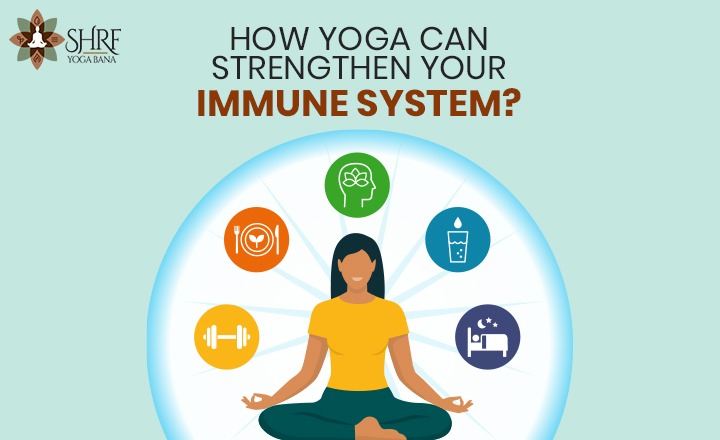Yoga is a great exercise for all age groups. No matter when you start doing yoga you will feel better from day one. And it is said that yoga should be in the curriculum of our school students so that they start developing the habit of it and begin to see the effects early on in their lives.
The importance of yoga is undeniable in our lives and especially after seeing the COVID 19 pandemic, we should become more aware of our health and immune system. But, many argue about yoga being a helper in the immune system & question its importance in building an individual’s immunity?
So, for all those who are in doubt and for those too who want a reaffirmation regarding the same; here are 4 ways by which yoga helps you build a strong immune system.
1. Improves breathing
Yoga improves your breathing and lung capacity as many of the poses require a lot of breathing routines. These routines help you get enough oxygen which acts as fuel for your body parts and your brain to function properly. As the routine continues, it helps you build a good and healthy body that naturally has a good immune against foreign bodies like viruses and bacteria.
2. Works the muscles
As the muscles also get worked up due to different poses in yoga; it helps develop better resistance to illness. It works on many major muscle groups which after getting strong support & guard the internal organs. Developed muscles keep you active and you become naturally more immune to any kind of diseases or illnesses as it is.
3. Great for the heart
Swift movements in yoga with a lot of repetitions work up the cardiovascular muscles which reduce the chances of heart-related diseases. Blood circulation again plays a great role here as it carries a lot of nutrients to the heart which keeps the heart young and upbeat & a healthy heart will always be much less prone to any kind of illness in comparison with someone who doesn’t do yoga.
4. Improves blood circulations
Blood circulation is also very well improved by the movements of different kinds involved in yoga practice. As discussed earlier, deep breathing helps in pumping a lot of oxygen into the bloodstream which makes it to the different parts of the body. This circulation of blood is also supported by regular yoga practice, which improves your system every day.
5. Controls sympathetic system dominance
Systematic system dominance is usually the reflexes that are baked into your biology and happen without the drive of any conscious thought i.e. breathing, hormone release, digestion, etc. The reactionary state is controlled by a sympathetic system which is improved by daily yoga practice. As and when you start to advance in your practice; you start gaining more and more control over it.
6. Improves parasympathetic responses too
The autonomic nervous system has two major parts; the first one is described in the 5 pointer which is reflex actions which are a part of your being; more like tendencies of your body of how it will react in certain states. The other one is the parasympathetic response of your body which is responsible for rest and relaxation activities as you rest or sleep. Basically, the response of your body towards replenishing or repairing. This is also improved as you move along and gain more control over your yoga routine and add more poses to your practice.
7. Improves quality of sleep.
A relaxed body at rest achieves REM (rapid eye movement) sleep, the earliest. Yoga poses and routines work up the body muscles and improve mind control so much that the bodily functions you think are independent on their own also start to surrender to your will. Not entirely but you get some kind of governance that leaves you with a better grip over your sleeping, eating, and other involuntary functions that the body performs.
There can be multiple reasons why our immune system gets the strength it needs from yoga, but the above-mentioned 4 points cover all the bases. As everything is interconnected when it comes to the human body; it’s safe to say that yoga plays a huge role in developing the immune system as any other exercise.
